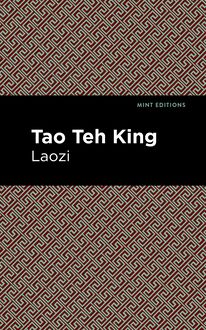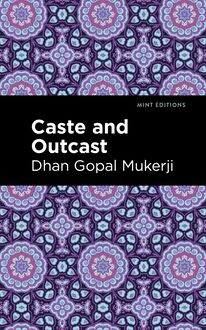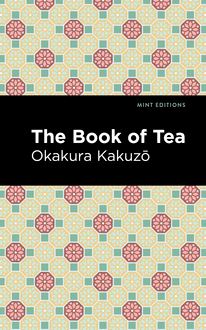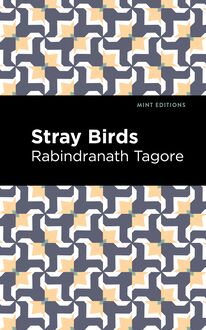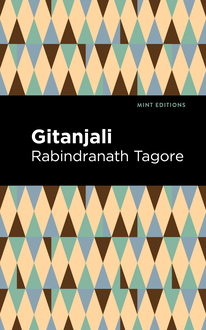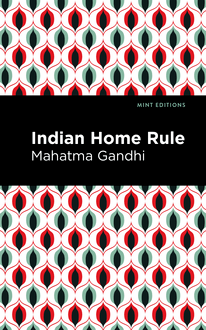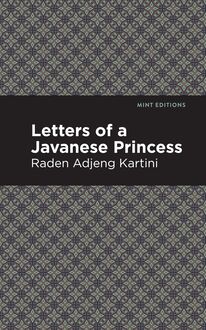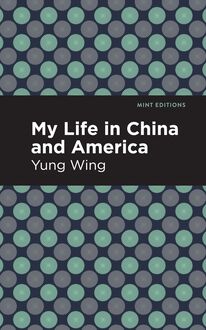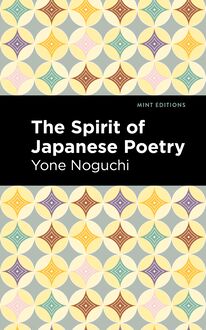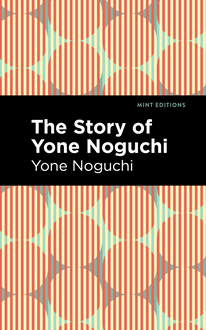-
 Univers
Univers
-
 Ebooks
Ebooks
-
 Livres audio
Livres audio
-
 Presse
Presse
-
 Podcasts
Podcasts
-
 BD
BD
-
 Documents
Documents
-
- Cours
- Révisions
- Ressources pédagogiques
- Sciences de l’éducation
- Manuels scolaires
- Langues
- Travaux de classe
- Annales de BEP
- Etudes supérieures
- Maternelle et primaire
- Fiches de lecture
- Orientation scolaire
- Méthodologie
- Corrigés de devoir
- Annales d’examens et concours
- Annales du bac
- Annales du brevet
- Rapports de stage
La lecture à portée de main
Vous pourrez modifier la taille du texte de cet ouvrage
Découvre YouScribe en t'inscrivant gratuitement
Je m'inscrisDécouvre YouScribe en t'inscrivant gratuitement
Je m'inscrisEn savoir plus
Vous pourrez modifier la taille du texte de cet ouvrage
En savoir plus

Description
The Spoilt Child (1893) is a novel by Peary Chand Mitra. Originally published as Alaler Gharer Dulal under the pseudonym Tek Chand Thakur, Mitra’s novel is considered one of the first written in plainspoken, accessible Bengali. Translated here by G. D. Oswell, The Spoilt Child remains an essential work of nineteenth century Indian literature. “Matilall, having been indulged in every possible way from his boyhood, was exceedingly self-willed; at times, he would say to his father: ‘Father, I want to catch hold of the moon!’ ‘Father, I want to eat a cannon-ball!’ Now and then he would roar and cry, so that all the neighbours would say: ‘We cannot get any sleep owing to that dreadful boy.’ Having been so spoilt by his parents, the boy would not tolerate the bare idea of going to school, and thus it was that the duty of teaching him devolved upon the house clerk.” Born into wealth, spoiled by his parents, Matilall grows up to be an unruly young man. Educated by a private tutor and later in a proper school, he excels in reading and writing. But his wild ways soon prove troublesome, causing Matillal to associate with the wrong crowd of boys. One day, after leaving school, he is arrested and beaten by a notorious police officer for no reason other than that of his reputation. Put on trial, his life is saved by his tutor Thakchacha, who bravely testifies on the boy’s behalf—but his trials are far from over. With a beautifully designed cover and professionally typeset manuscript, this edition of Peary Chand Mitra’s The Spoilt Child is a classic of Bengali literature reimagined for modern readers.
Sujets
Informations
| Publié par | Mint Editions |
| Date de parution | 28 septembre 2021 |
| Nombre de lectures | 0 |
| EAN13 | 9781513213484 |
| Langue | English |
Informations légales : prix de location à la page 0,0500€. Cette information est donnée uniquement à titre indicatif conformément à la législation en vigueur.
Extrait
The Spoilt Child
A Tale of Domestic Life
Peary Chand Mitra
The Spoilt Child: A Tale of Domestic Life was first published in 1983.
This edition published by Mint Editions 2021.
ISBN 9781513215488 | E-ISBN 9781513213484
Published by Mint Editions®
minteditionbooks.com
Publishing Director: Jennifer Newens
Design & Production: Rachel Lopez Metzger
Project Manager: Micaela Clark
Translated by: G.D. Oswell
Typesetting: Westchester Publishing Services
C ONTENTS P REFACE I. M ATILALL AT H OME II. M ATILALL ’ S E NGLISH E DUCATION III. M ATILALL AT S CHOOL IV. M ATILALL IN THE P OLICE C OURT V. B ABURAM IN C ALCUTTA VI. M ATILALL ’ S M OTHER AND S ISTERS VII. T HE T RIAL OF M ATILALL VIII. B ABURAM AND M ATILALL RETURN H OME IX. M ATILALL AND HIS F RIENDS X. T HE M ARRIAGE C ONTRACT XI. T HE P OETASTER XII. B ARADA B ABU XIII. B ARADA B ABU ’ S P UPIL XIV. T HE F ALSE C HARGE XV. T RIAL OF B ARADA B ABU XVI. T HAKCHACHA AT H OME XVII. B ABURAM ’ S S ECOND M ARRIAGE XVIII. M OZOOMDAR ON THE M ARRIAGE XIX. D EATH OF B ABURAM B ABU XX. T HE S HRADDHA C EREMONY XXI. M ATILALL ON THE G UDDEE XXII. M ATILALL IN B USINESS XXIII. M ATILALL AT S ONAGAJI XXIV. T HAKCHACHA A PPREHENDED XXV. M ATILALL IN J ESSORE XXVI. T HAKCHACHA IN J AIL XXVII. T HE T RIAL AT THE H IGH C OURT XXVIII. A P HILANTHROPIST XXIX. B ANCHARAM IN P OSSESSION XXX. M ATILALL AT B ENARES : H OME A GAIN N OTES G LOSSARY
P REFACE
T he author of this novel, Babu Peary Chand Mitter, was born in the year 1814.
He represented the well-educated, thoroughly earnest, and courteous Bengali gentleman of the old school.
His life was devoted to the good of his fellow-countrymen, and he was especially eager in the cause of female education. In the preface to one of his works, written with that object in view, he writes:—“I was born in the year 1814. While a pupil of the P á thsh á l á at home, I found my grandmother, mother, and aunts reading Bengali books. They could write in Bengali and keep accounts. There were no female schools then, nor were there suitable books for the females. My wife was very fond of reading, and I could scarcely supply her with instructive books. I was thus forced to think how female education could be promoted in a substantial way. The conclusion I came to was that, unless womanhood were placed on a spiritual basis, education would never be productive of real good. For the furtherance of this end I have been humbly working.”
Amongst the books he published with this end in view are the “Ramaranjika,” the “Abhedi,” and the “Adhy á twik á .” The “Ramaranjika” deals with female education under different aspects, and gives examples drawn from the lives of eminent Englishwomen, as well as biographical sketches of distinguished Hindu women, drawn from history and tradition. Of the “Abhedi” the author says:—“It is a spiritual novel in Bengali, in which the hero and heroine have been described as earnest seekers after the knowledge of the soul, and as obtaining spiritual light by the education of pain.” Of the “Adhy á twik á ,” the author tells us:—“It brings before its readers the conversation and manners of different classes of people, in different circumstances, which have been pourtrayed in different styles, and which may perhaps be useful to foreigners wishing to acquire a colloquial knowledge of the Bengali language.”
Babu Peary Chand Mitter was a man who keenly felt the evils in society around him, and he used his pen in the cause of temperance and the purity of the domestic circle as against drunkenness and debauchery; amongst his writings having this object in view is the “Mada Kh á oya bara d á ya,” or “The great evils of dram-drinking.” It is a novel marked by great humour, and shows the author to have been a satirist of no mean power.
Besides these novels he wrote “The Life of David Hare” both in Bengali and in English. He also contributed essays to The Calcutta Review , and an American publication called The Banner of Light , besides writing articles for the Agri-Horticultural Society of India.
Babu Peary Chand Mitter died in 1883.
The novel “Alaler Gharer Dul á l,” or “The Spoilt Darling of an Ill-regulated House,” was written more than forty years ago, and was very well received, as the criticisms of the day show. The Calcutta Review of the day says:—“We hail this book as the first novel in the Bengali language. Tek Chand Thakur has written a tale the like of which is not to be found within the entire range of Bengali literature. Our author’s quiet humour reminds us of Goldsmith, while his livelier passages bring to our recollection the treasures of Fielding’s wit. He seems to be familiar with Defoe, Fielding, Scott, Dickens, Bulwer, Thackeray, and other masters of fiction.”
Other critics of the day compared him to a Moli é re or a Dickens.
Mr. John Beames, in his “Modern Aryan Languages of India,” writes:—“Babu Peary Chand Mitter, who writes under the nom de plume of Tek Chand Thakur, has produced the best novel in the language ‘Alaler Gharer Dul á l.’ He has had many imitators, and certainly stands high as a novelist. His story might fairly claim to be ranked with some of the best comic novels in our own language for wit, spirit, and clever touches of nature. He puts into the mouth of each of his characters the appropriate method of talking, and thus exhibits to the full the extensive range of vulgar idioms which his language possesses.”
In an introductory essay on Bengali novels, in his translation of Babu Bunkim Chandra Chatterjee’s novel “Kopal Kundala,” Mr. Phillips writes:—“The position and character of Bengali literature is peculiar. A backward people have, so to speak, rushed into civilization at one bound: old customs and prejudices have been displaced, uno ictu , by a state of enlightenment and advanced ideas. The educated classes have suddenly found themselves face to face with the richest gems of Western learning and literature. The clash of widely divergent stages of civilization, the juxtaposition of the most advanced thought with comparative barbarism, has produced results which, though perhaps to be expected, are somewhat curious. If one tries to close a box with more than it can hold the lid may be unhinged,—new wine may burst old bottles. The colliding forces of divergent stages of civilization have produced a literature that for want of a better expression may be called a hybrid compromise between Eastern and Western ideas. So we find that the Bengali novel is to a great extent an exotic. It is a hot-house plant which has been brought from a foreign soil; but even crude imitations are better than the farragos of original nonsense, lists of which appear from time to time in the pages of the Calcutta Gazette .
The above remarks are merely general, and there exist, of course, bright and notable exceptions, among whom may be mentioned the names of Peary Chand Mitter (the father of Bengali novelists), Bunkim Chandra Chatterjea, Romesh Chandra Dutt, and Tarak Nath Ganguli.
The ‘Alaler Gharer Dul á l’ of Peary Chand Mitter may be called a truly indigenous novel, in which some of the reigning vices and follies of the time are held up to scorn and derision. A deep vein of moral earnestness runs through all the writings of Peary Chand Mitter, and he takes the opportunity to interweave with the incidents of his story disquisitions on virtue and vice, truthfulness and deceit, charity and niggardliness, hypocrisy and straightforwardness. Not only general vices, such as drinking and debauchery, but particular customs, such as a Kulin’s marrying a dozen wives, and living at their expense, are condemned in no measured terms. The book is written in a plain colloquial style, which, combined with a quiet humour, procured for it a considerable degree of popularity.”
As further evidence, if such were wanting, of the popularity of this novel, it may be mentioned that it has been dramatized, having been published in the form of a natak or play, by Babu Hira Lall Mitter.
The leading characteristics of the novel, as they have appeared to the translator, are the humour, pathos, and satire that pervade almost every page of it.
The humour, though it may occasionally be broad, can never be called coarse, and much of it is the cultured humour that might be expected from a writer well acquainted with his own ancient classics. If Thackeray is the type of the cultured humorist of the West, Peary Chand Mitter is the type of the cultured humorist of the East.
The pathos is especially noticeable in some of the scenes which the author has pourtrayed for us with such vivid reality where the poor are brought before us. We see the utter dependence of the poor upon the generosity of the rich, a generosity that is rarely appealed to in vain: there is pathos too in the scene that brings before us the ryot and his landlord; and in the scenes in the zenana and the bathing- ghât where we have an insight into the lives and the thoughts of both the upper and lower classes of the women of the country. There is a deep pathos in the scene that brings before us the old man at Benares, spending the evening of his days in reading and meditation, in “The Holy City”: it is a scene that gives us an insight into the deeper religious side of the Hindu character.
The satire is only merciless where it is directed against the vices of drinking and debauchery, or against the custom of the much marrying of Kulins, or the marrying of old men to young girls, or solely for money. In other cases it is not unkindly, especially where it is directed against that not uncommon failing both in the West and the East, which Shakespeare has immortalized as “too much respect upon the world,” and which is largely exhibited in the East in the form of lavish expenditure, regardless of debt, upon social and religious ceremonies.
Amongst other characteristics of this novel may be noted that deep vein of moral earnestness, already referred to, w
-
 Univers
Univers
-
 Ebooks
Ebooks
-
 Livres audio
Livres audio
-
 Presse
Presse
-
 Podcasts
Podcasts
-
 BD
BD
-
 Documents
Documents
-
Jeunesse
-
Littérature
-
Ressources professionnelles
-
Santé et bien-être
-
Savoirs
-
Education
-
Loisirs et hobbies
-
Art, musique et cinéma
-
Actualité et débat de société
-
Jeunesse
-
Littérature
-
Ressources professionnelles
-
Santé et bien-être
-
Savoirs
-
Education
-
Loisirs et hobbies
-
Art, musique et cinéma
-
Actualité et débat de société
-
Actualités
-
Lifestyle
-
Presse jeunesse
-
Presse professionnelle
-
Pratique
-
Presse sportive
-
Presse internationale
-
Culture & Médias
-
Action et Aventures
-
Science-fiction et Fantasy
-
Société
-
Jeunesse
-
Littérature
-
Ressources professionnelles
-
Santé et bien-être
-
Savoirs
-
Education
-
Loisirs et hobbies
-
Art, musique et cinéma
-
Actualité et débat de société
- Cours
- Révisions
- Ressources pédagogiques
- Sciences de l’éducation
- Manuels scolaires
- Langues
- Travaux de classe
- Annales de BEP
- Etudes supérieures
- Maternelle et primaire
- Fiches de lecture
- Orientation scolaire
- Méthodologie
- Corrigés de devoir
- Annales d’examens et concours
- Annales du bac
- Annales du brevet
- Rapports de stage

